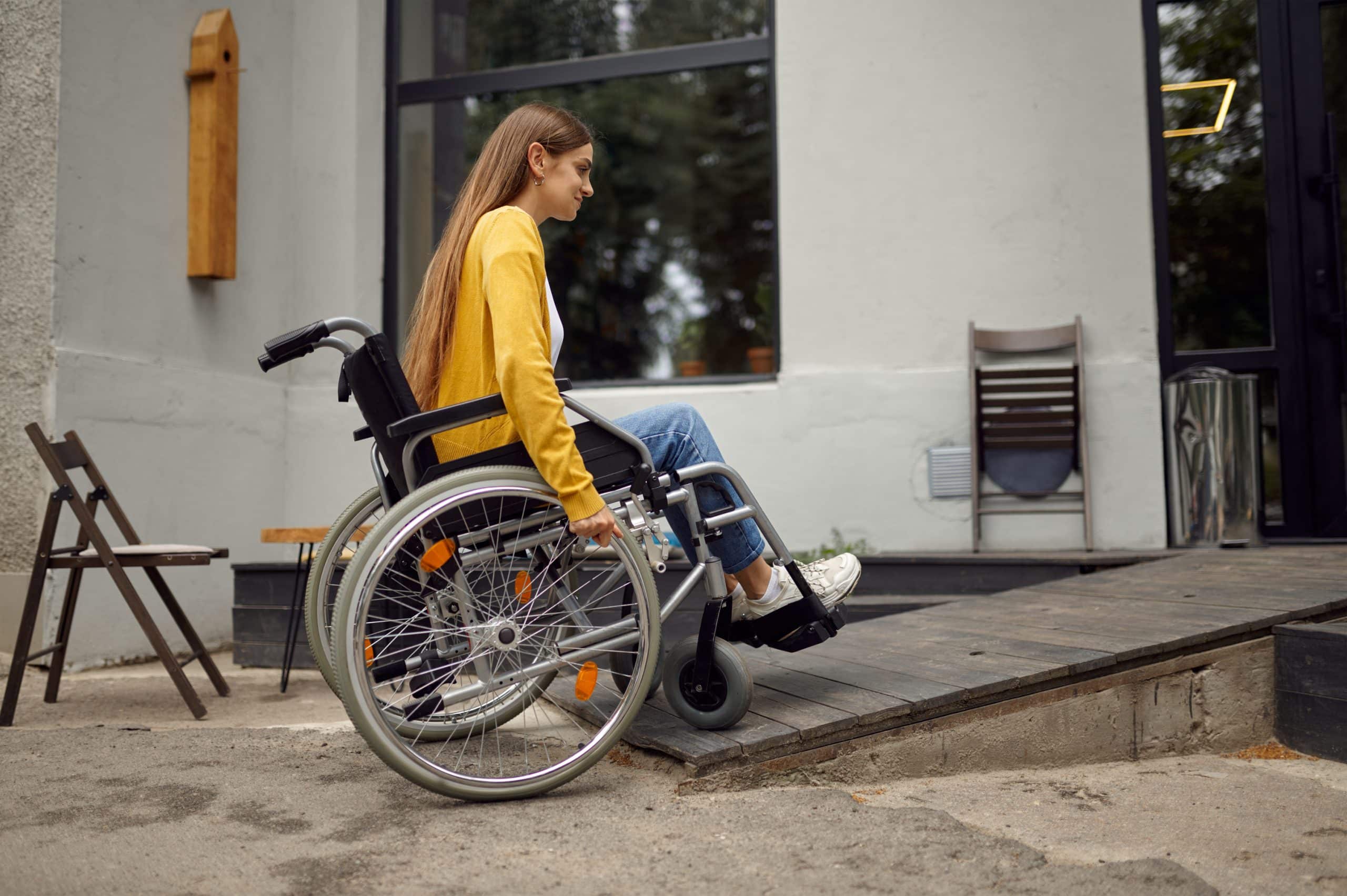How to Build a Custom Ramp for a Senior Dog with Mobility Issues?

If you’re a pet owner, you understand the strong bond that forms between humans and their four-legged companions. Dogs, fondly referred to as man’s best friend, are more than just pets; they’re family. Watching them get older and struggle with mobility issues can be heart-wrenching. Pain from arthritis can make it challenging for your senior dog to move around, especially when it comes to climbing stairs or getting on and off the bed. However, a ramp designed specifically for your dog will provide the requisite support to navigate these hurdles. In this article, we will guide you through the process of building a custom ramp for your senior dog.
1. Understanding the Need for a Dog Ramp
Before we delve into the construction process, it’s important to understand why a ramp can be a game-changer for your senior dog. As dogs age, they may develop various health conditions such as arthritis, which can make it difficult for them to navigate steps or jump onto a bed. A ramp provides a gentle incline that significantly eases the effort required, thereby reducing the strain on their joints and the pain associated with it.
A voir aussi : What’s the Best Way to Introduce a Conure to New Foods and Treats?
A custom ramp built specifically for your dog’s measurements will ensure it’s not too steep or too shallow. This customization provides the right amount of support that your pup needs to maintain its mobility and independence. Over time, the ramp will become a valuable tool for your dog, helping to keep them active and agile despite their advancing age and health conditions.
2. Materials and Tools You Will Need
Building a custom ramp for your senior dog does not require any specialized knowledge or skills. You will, however, need some basic tools and materials:
Avez-vous vu cela : How to Introduce an Elderly Dog to a Gentle Massage Routine for Arthritis Relief?
- Plywood or a plank of wood for the ramp
- Carpet or rubber matting for traction
- Wood screws
- Power drill
- Measuring tape
- Saw
- Sandpaper
The plywood or plank will serve as the main structure of the ramp. A carpet or rubber matting will be attached to it for your dog’s traction and comfort. The screws will help keep everything in place, and the power drill will make the construction process much easier. Lastly, the measuring tape, saw, and sandpaper will help you cut and shape the ramp to the perfect size for your pet.
3. Measuring Your Dog and the Areas of Use
Before you start building, take some time to measure your dog and the areas where the ramp will be used. The size and design of the ramp will largely depend on these measurements. For example, your dog’s height and length will determine the ideal width and slope of the ramp.
Measure the height of the bed or the number of steps that your dog struggles with. This will give you an idea of how long your ramp needs to be. Remember, a longer ramp will result in a gentler slope, which is easier for your pet to navigate.
Also, consider the weight of your dog. If your senior dog is on the heavier side, you’ll want to ensure the ramp is sturdy enough to support them. A wider ramp made from thick, strong plywood would be suitable in this case.
4. Constructing the Ramp
Now that you have all your measurements and materials, it’s time to start building the ramp. Begin by cutting the plywood or plank to match the length and width you have determined. Use the sandpaper to smooth any rough edges to prevent potential injury to your dog.
Next, attach the carpet or rubber matting to the ramp using the wood screws and power drill. This will add traction to the ramp, making it safer for your dog to use. Make sure that the material is securely fastened and that there are no loose ends that could cause your pet to trip or slip.
Finally, test the ramp to ensure it’s stable and can support your dog’s weight. You might want to entice your dog to use the ramp with a treat or toy, to make sure they are comfortable using it.
5. Positioning and Introducing the Ramp to Your Dog
Once the ramp is constructed, position it in the necessary areas. If it’s meant for your bed, make sure it’s securely placed against it. If it’s for stairs, ensure it’s positioned at a suitable gradient. The ramp should be stable and not move when your dog uses it.
Introducing your dog to the ramp may take some time. Encourage them to use it by placing treats or their favorite toys on it. Remember to reward them for successful attempts. Over time, they will become comfortable with their new tool, and it will significantly aid in maintaining their mobility and independence.
6. Maintaining the Ramp for Optimal Use
Keeping the dog ramp in prime condition is crucial for its effective usage over time. Even a well-constructed ramp can wear down from regular use, especially if your senior dog is on the heavier side. A worn-out or damaged ramp might not be as effective and could even lead to accidents.
To start with, do regular checks for any signs of damage. Look out for loose screws or worn-out sections of the carpet or matting. Loose screws should be tightened immediately and worn-out sections should be replaced promptly to prevent any slipping accidents. A slip-resistant material such as rubber matting is recommended as it can provide better traction for dogs with mobility issues, even when worn out slightly.
Next, keep the ramp clean. Dirt and grime can reduce the efficacy of the traction material on the ramp. Regularly vacuum or wipe down the ramp to keep it clean and increase its longevity.
For older dogs, particularly those with arthritis, the comfort level of the dog ramp is paramount. Thus, you might want to add a layer of foam on the dog ramp for added comfort. A foam dog ramp is softer on their joints and can make maneuvering the ramp less painful for them.
Lastly, consider the location of the ramp. If it’s placed outdoors for navigating ramps stairs, it might be exposed to elements like rain or snow. In such cases, using a waterproof material for construction or applying a waterproof coating can help maintain its durability.
7. The Multiple Benefits of a Dog Ramp
The benefits of a dog ramp extend far beyond helping your senior pup navigate heights. Firstly, it aids in preserving your pet’s joint health. Consistent usage of the ramp can help alleviate pain associated with arthritis and other degenerative joint conditions, providing a significant relief to your furry friend.
Secondly, it promotes independence in senior dogs. With a ramp with a gentle incline, your dog can climb onto the bed or navigate stairs on their own, without needing your physical assistance. This can contribute to their mental well-being, as it preserves their sense of dignity and autonomy.
Thirdly, a dog ramp can also be beneficial for you, the pet owner. It can save you from the strain of lifting your dog, preventing possible back or muscle injuries. Moreover, it gives you peace of mind, knowing that your beloved pet can move around safely.
In conclusion, dog ramps are simple yet powerful tools that can make a world of difference for dogs facing mobility issues. They are not difficult to build and maintain, and the benefits they provide are immense. Whether you opt to buy dog ramps or build one yourself, remember that the comfort and safety of your furry friend should be your top priority. Encourage and train your dog to use the ramp regularly, and it will soon become an indispensable part of their daily life. The process of aging can be challenging for pets, but with tools like dog ramps, we can make their journey a little easier. The love and care we demonstrate towards our senior dogs in their golden years is a reflection of the companionship and joy they’ve given us throughout their lives.
